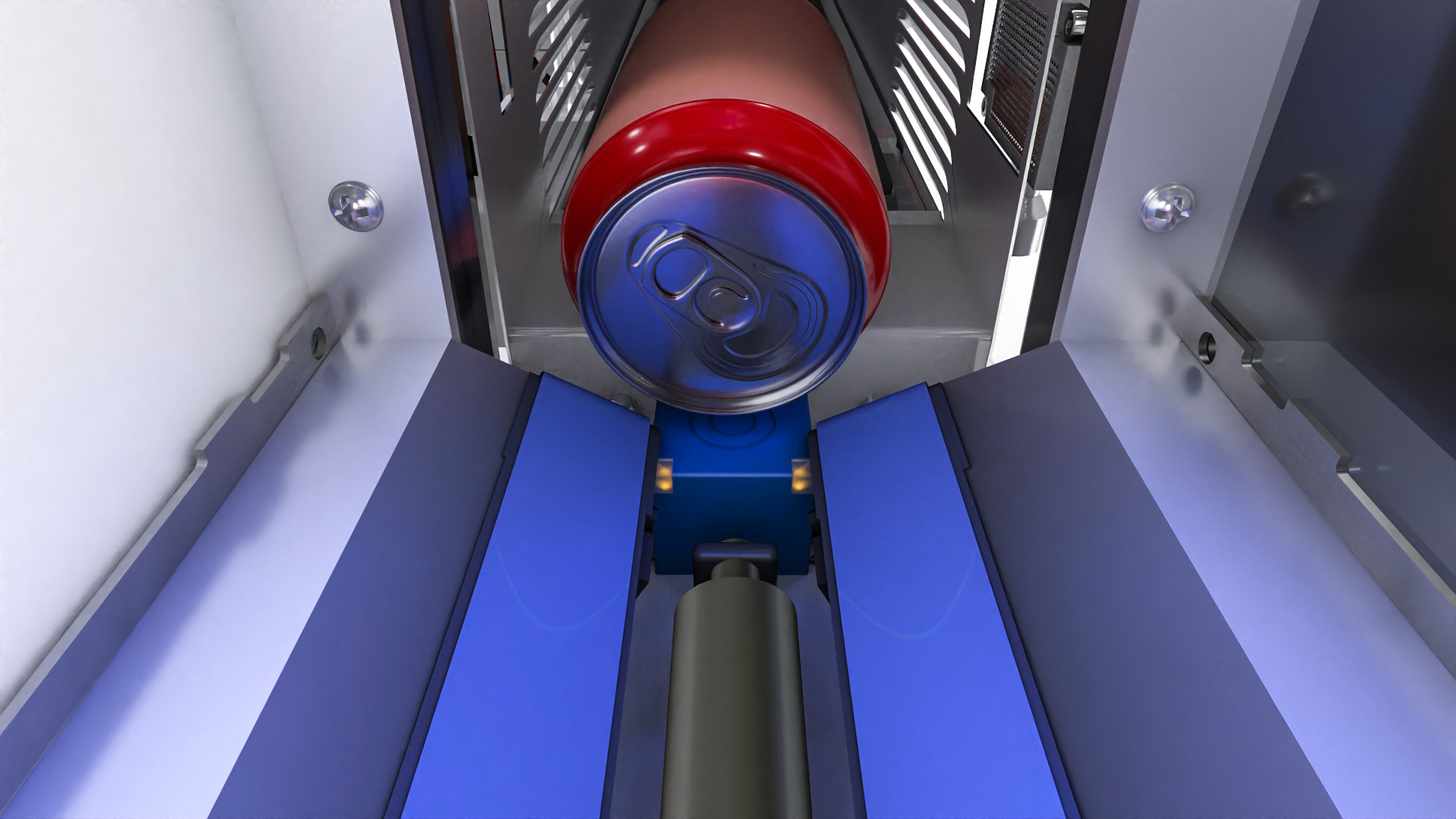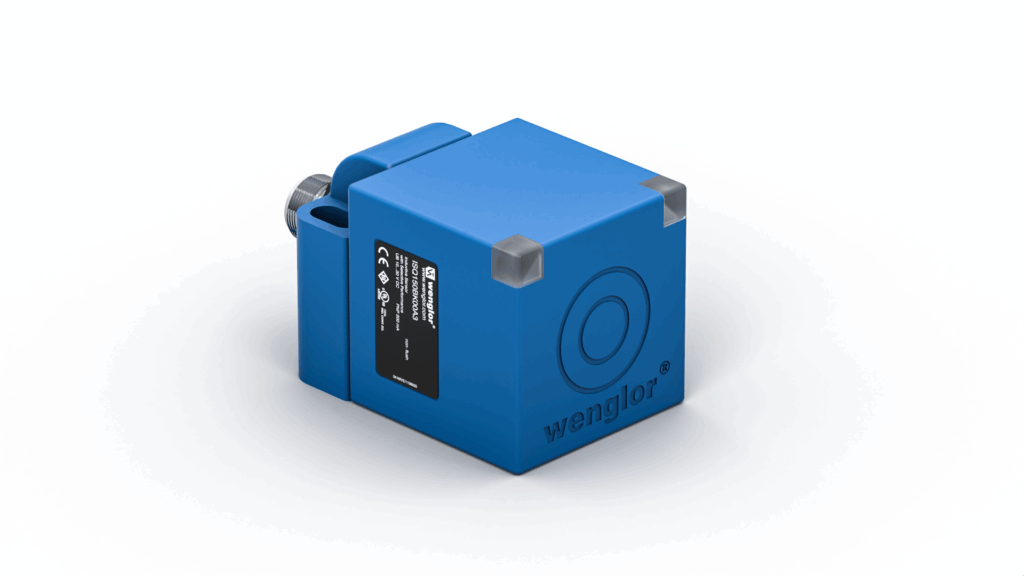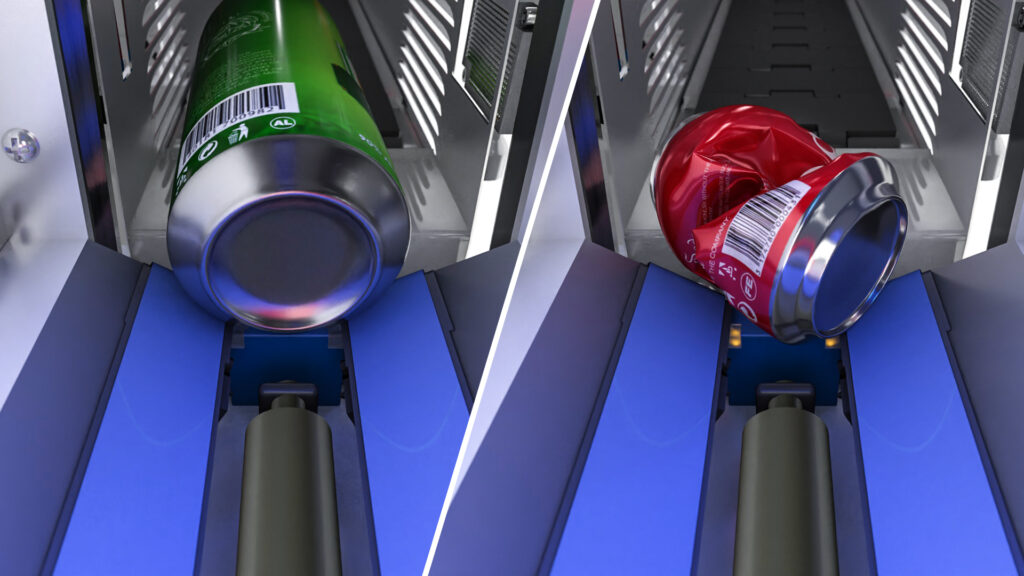
In industrial automation, the precise differentiation of materials is often crucial. Inductive sensors with selective behavior offer an intelligent solution for differentiating between different metals – without any contact or wear.


Inductive sensors detect metal objects through electromagnetic induction. The selective variant of these sensors goes one step further: they differentiate specifically between ferromagnetic and non-ferromagnetic materials.
This differentiation is based on the specific electromagnetic properties of the materials and enables precise and reliable material detection.

A classic example of the use of selective sensors is the automatic sorting of beverage cans:
This selective detection makes it possible to reliably separate different can materials, which considerably simplifies the automation of sorting processes.
Inductive sensors with selective behavior from wenglor are used in various applications:
The ability to distinguish between metals opens up numerous advantages:
Inductive sensors with selective behavior from wenglor offer an efficient and reliable solution for material detection in industry. Thanks to their ability to distinguish between different metals, they help to optimize production processes and increase quality assurance.

Job title